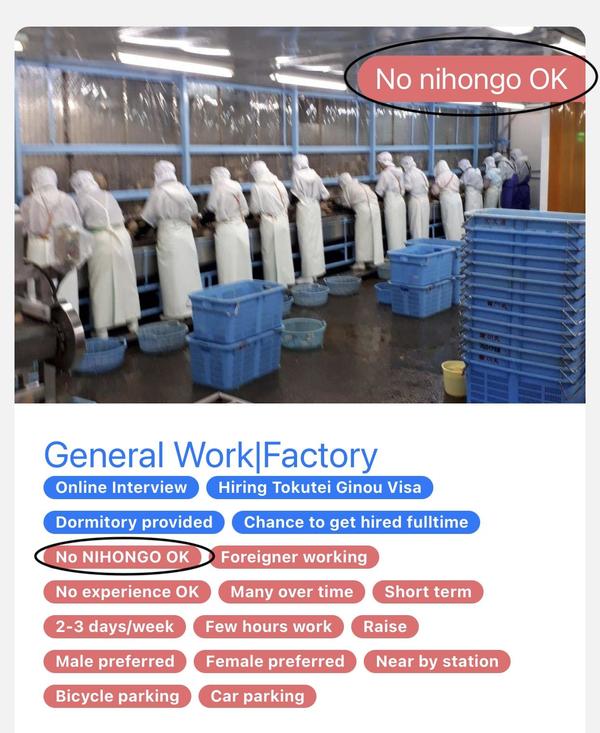Job hunting in today’s economy requires patience and perseverance. Japan offers a great opportunity for anyone to get a job, especially foreigners. But to be able to successfully find a job in Japan, you need to consider certain factors.
Here are some tips to make your job search in Japan easier.
Job type
Japan offers a variety of jobs for people, based on industry, expertise, visa type etc. First figure out the kind of job you are looking for or are eligible for.
Full time jobs
There are certain visas which allow foreigners to work full-time jobs. Usually those who have graduated from a university in their home country get a full time visa. Having excelled Japanese language skills also increases your chances of getting a full time job. Full time jobs for foreigners generally include teaching (language or specialized skill), IT engineering & consulting, project management, business analysis, bridge engineers etc. These jobs are generally high paying.
Part time jobs
A lot of part time jobs are at offer in Japan and many visa types are eligible for these jobs – whether it is student visa, working holiday or spouse visa. Part time jobs can be a great source of income for daily expenses for foreign students and even those in Japan on a working holiday visa. Restaurants, farms, hotels, convenience stores, fast food chains, all hire for part time jobs.
These jobs offer flexible work hours and are okay with hiring people with no experience. This is a godsend for many, especially students.
Finding a good fit
To search for a job that fits your needs, you not only need to find a good job fit, but also a company where you can grow and polish your skills. Japan is home to some of the fastest growing global companies, as well as many small enterprises operating pan-Japan.
For instance, look for part time jobs in large convenience stores like FamilyMart or Seven-Eleven – these supermarkets are always looking for hiring part time employees.
If you are in the engineering (CAD/CAM, automotive, electronics engineering etc) or the IT field, these companies are always looking for experts in their area for full-time job opportunities.
New and exciting opportunities are also coming up for people in the banking sector, especially for foreign financial experts.
If you are from a native English speaking country, you can also easily get a job as an English language teacher.
Here are some tips on how to prepare for an interview in a Japanese company.
Found the job, what next?
So you found the jobs you are interested in, what next? How to go about applying for these jobs and what should you take care of?
Verified sources
You can find a job in Japan through many sources – placement agencies in your country, placement agencies in Japan, apps like WORK JAPAN, overseas job fairs etc. Keep track of any job fairs happening in your country, through your university network or through a placement agency. Make sure you do some background check beforehand – whether these agencies/fairs are valid and have a verified history of placements. A lot of these agencies and job fairs specifically look for fresh university graduates.
Employment contract
This is especially important if you are trying to come to Japan from overseas on the basis of securing a job here. Your work visa application requires a bunch of documents – both from you and your employer. So make sure you have an employment contract in place with the employer and get your Certificate of Eligibility. Only then you can apply for your work visa.
Visa requirements
You can come to Japan by acquiring different types of visas, which allow you to work different types of jobs. You can read tips here about how to acquire a Japan work visa. Usually for working in Japan, you would apply for a regular work visa, a skilled worker visa or a working holiday visa. Other visa types include Student visa, Dependent visa, Designated activities etc, but we will only discuss visas specifically for working in Japan.
- Regular work visa – This visa is eligible for professionals who intend to work in Japan for a specific amount of time as technical labor, instructors, journalists, business managers etc. To apply for this visa, you need a Certificate of Eligibility (provided by your employer in Japan), a valid passport, educational certificates, company details and a filled visa application form. You can work with this visa in Japan from anywhere between 3 months to 5 years
- Highly Skilled professional visa – This visa offers a longer duration of stay in Japan and also better job opportunities. But to acquire this visa, you must qualify as a highly skilled professional
- Working holiday visa – This visa is different from others, as in, you can look for a job in Japan after coming to Japan with this visa. The Working Holiday visa can only be obtained by citizens of countries which have entered into bilateral agreements with Japan. It helps you explore the Japanese culture and also make a living while doing that
- Tokutei Ginou (Specified Skills worker visa) – This visa type is relatively new, introduced only in April 2019. This category helps employers hire foreigners under 14 specific industries. Unlike other work visas, where the applicant must hold a university degree or prior experience, Specified Skills worker visa (Tokutei Ginou) DOES NOT require a degree, and the visa holder gets a chance to upgrade to permanent residency in Japan.
There are 2 visa statuses added under Tokutei Ginou – Specified Skills 1 and 2. To apply for this visa, you need to have some knowledge of the Japanese language and also experience in the industry for which you are applying. A certificate from an authorized institution and a 1-2 year experience goes a long way in getting this visa. Specified Skill 2 visa is a step up from Specified Skills 1 and recognizes workers who are better experienced or highly qualified in their field. With this visa, you get some additional advantages over Specified Skills 1.
The industries currently covered by Tokutei Ginou are Agriculture, Aviation, Building cleaning, Construction, Electronics & Electrical equipment, Fishing, Food & drink manufacturing, Hospitality, Industrial machinery, Materials industry, Nursing, Restaurant catering/banqueting, Ship building and Vehicular maintenance.
Apart from these, there are other visa types like Designated activities, Skilled labor, Technical intern training etc. Check which visa type works best for your skillset.
Japan work culture
Once you land a job in Japan, make sure you understand the Japanese business culture and keep in mind certain aspects of working in Japan
Professionalism
Japanese employers pay particular attention to professionalism and one important aspect of that is respecting people’s time and feelings. Being punctual, working well in teams and maintaining a polite attitude are expected out of employees in any organization.
The Japanese people are humble in nature and it is also reflected in their day to day language. You will be expected to adhere to these practices when working in Japan.
Learning Japanese
Knowing the language (even if not very proficient) gives you an edge over other foreigners in Japan. Knowing Japanese can increase your chances of better, full time job opportunities. To get better salaries and full time employment, you have to take the JLPT, and for that it is important to keep working on your language skills.
Certain part time jobs are the only ones which do not require any knowledge of Japanese language (unless it is a global company where you are not required to speak any Japanese at all). Other than that, most employers require their recruits to have at least an N3 or N4 JLPT.
Anything higher (N2 or N1), and you can be certain to get good job opportunities.
Don’t worry if you do not know any Japanese, start at N5 and work your way up. Till then, look for jobs specifically marked as not requiring any Japanese skills (in WORK JAPAN apps you can look for the “No Nihongo” mark)

Summary
We hope this article has given you some clarity on how to start hunting for jobs in Japan. Japan has opened up its doors for hiring foreigners like you. Unfortunately, the process is a little slow due to COVID-19, but now is still probably the best time to find a job in Japan and create a better future for yourself.









